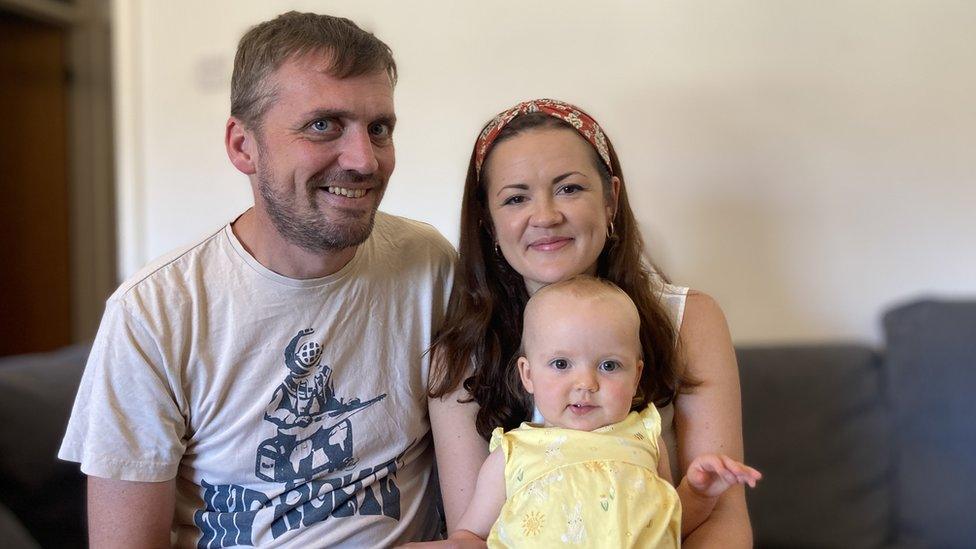Pace of UK house price rises slows to 11-month low, says ONS
- Published
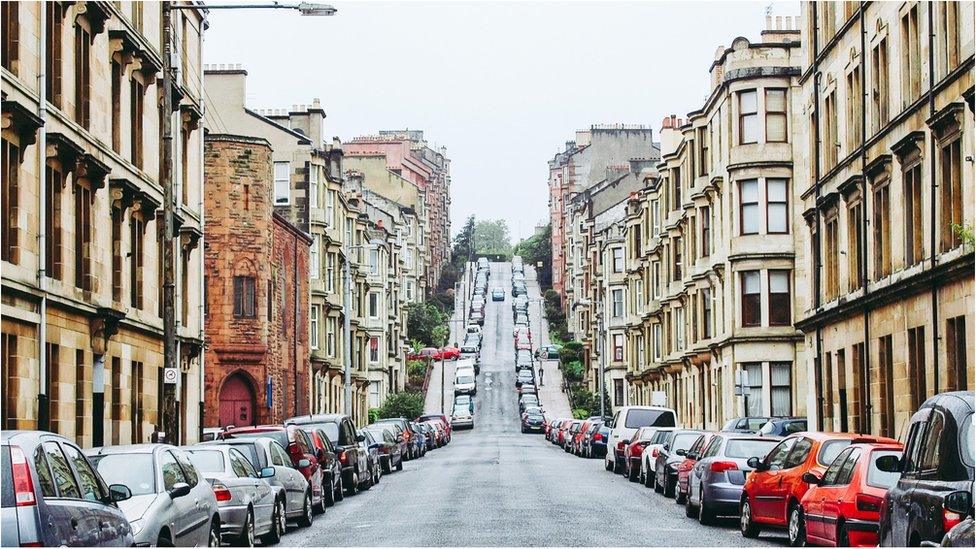
Glasgow is one city where demand for flats has risen
UK house prices rose at the slowest rate for 11 months, according to official figures, but property values were still up 7.8% in the year to June.
The annual increase in the UK average house price slowed from 12.8% the previous month, the Office for National Statistics (ONS) said, external.
It reflects sharp rises in demand and prices a year ago, just ahead of the withdrawal of a stamp duty tax break.
Scotland recorded the biggest rise in house prices in the latest figures.
Property prices were up by 11.6%, compared with a 7.3% rise in England, an 8.6% increase in Wales, and a 9.6% rise in Northern Ireland.
Among the English regions, the East recorded the fastest rise (up 9.7%) with the slowest in the North East (up 3.6%).
In the rental sector, the ONS said that prices paid by tenants accelerated by 3.2% in the 12 months to July - the largest annual growth since January 2016.
The rising cost of living and higher interest rates - leading to more expensive mortgages - will have an effect on the housing market. However, the ongoing mismatch between the number of homes on the market and the number of potential buyers is keeping prices relatively high.
The average UK home cost £286,000 in June, which is £20,000 higher than a year earlier, the ONS said.
Sarah Coles, senior personal finance analyst at investment platform Hargreaves Lansdown, said: "Right now, price rises are being driven by an imbalance of supply and demand, and a shortage of property for sale.
"However, with buyer numbers slowly falling and seller numbers rising, this will shift. Buyers are also starting to lose confidence, which is key."
The rising cost of living was not the most significant factor in the slowdown in house price rises in June.
Instead, it was the state of the market a year earlier as buyers raced to complete to take advantage of the stamp duty discounts in England and Northern Ireland.
That pushed up prices so the comparison with prices a year later is partially distorted, compared with the longer-term trend.
Related topics
- Published5 August 2022
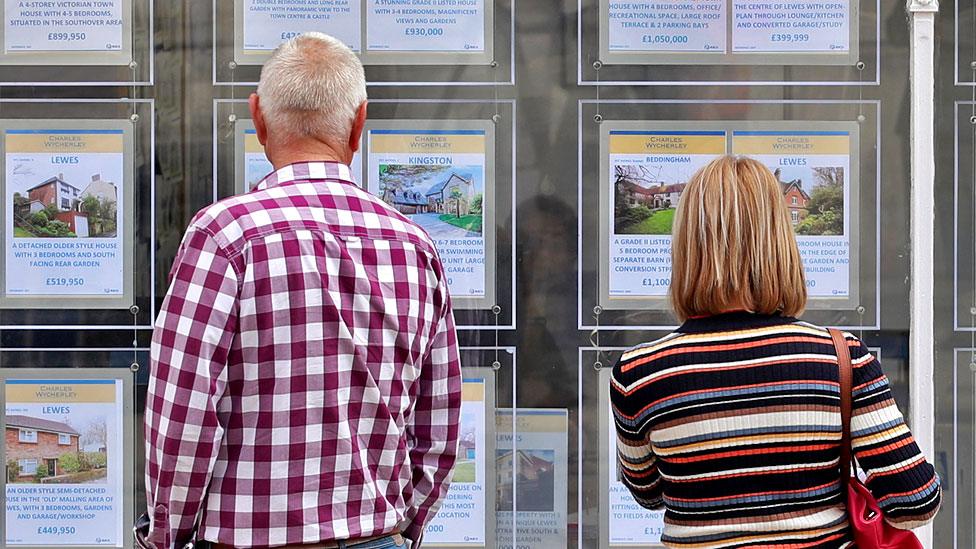
- Published15 August 2022
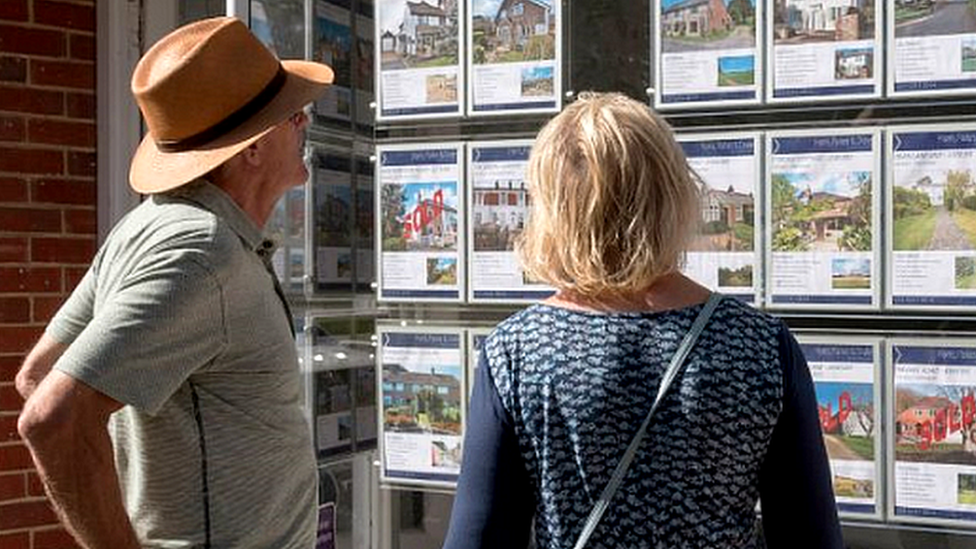
- Published1 May 2022
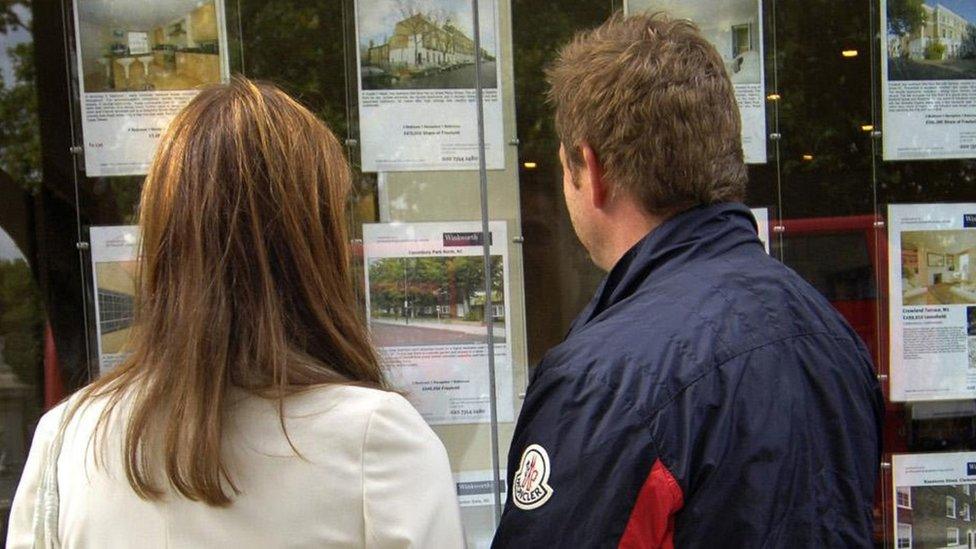
- Published11 August 2022
